From a Divine Call to a Duhok Delivery Ward: The German Midwife Transforming Maternal Care in Kurdistan
German midwife Maria Soldner, following a personal calling, is transforming maternal healthcare in Kurdistan. Her project dramatically reduced a painful post-birth procedure, but it is the profound human connections with the diverse people of the region that have truly defined her journey.
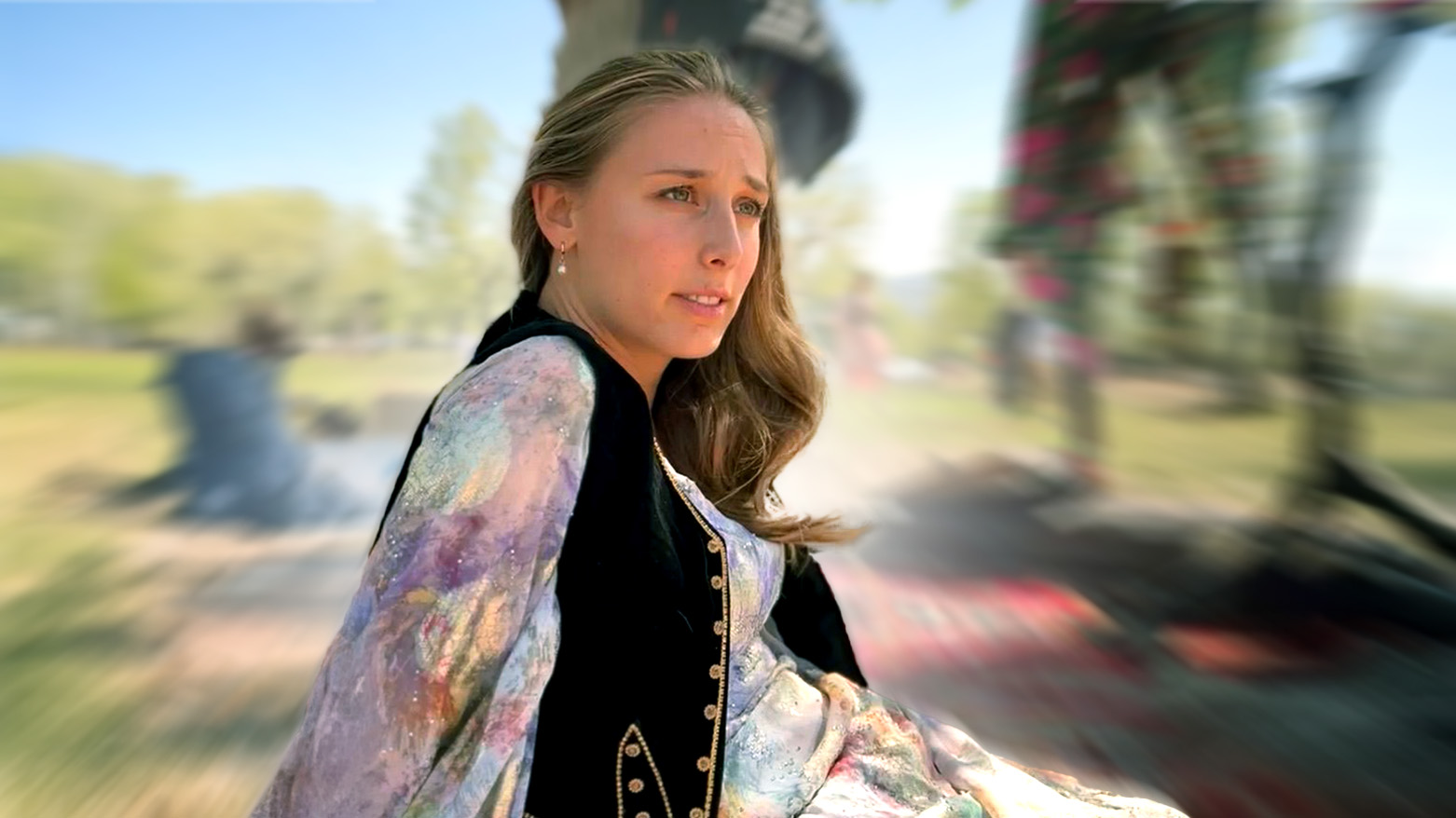
ERBIL (Kurdistan24) – In a quiet moment of reflection in Germany, a young woman of eighteen posed a question to the divine, seeking direction for her life. The answer she received was not a whisper, but a clear, life-altering command that would echo through the next decade and carry her across continents.
“In 2015 I asked God what He wanted to do with my life, and I heard Him say quite clearly ‘Become a midwife and go to the middle east’,” Maria Soldner recounted in a recent Kurdistan24 English interview. This profound calling set in motion a journey of patience, preparation, and ultimately, a deep and abiding love for a land she had yet to find on a map.
Initially, the path of a midwife was not one she was excited about, but faith guided her steps. She enrolled in midwifery school, dedicating her studies to the purpose she had been given.
She earned her practicing degree in midwifery in 2019 and began working at Germany’s largest maternity hospital, gaining four years of invaluable experience. Her academic pursuits continued alongside her clinical practice, and in 2021 she completed a thesis focused on a subject that fascinated her: the complex art of change management in labor wards.
For six long years, she waited for the door to open. Then, in a moment of extraordinary convergence, it was flung wide. "On one day," she recalled, "two people that don’t know each other and live on different continents asked me if I wanted to join them to support two different NGOs for two weeks each in Kurdistan."
The name was vaguely familiar, but the place was a mystery. “Until then I had only heard of Iraq and the Yazidi genocide, so I looked up on a map: ‘Where is Kurdistan?’” That simple act of cartography was the first step toward a new home.
In the summer of 2021, she made her first visit, volunteering with friends at an NGO in one of the camps. It was there that she met an American midwife, a connection that would illuminate the stark realities and pressing needs of maternal healthcare in the region.
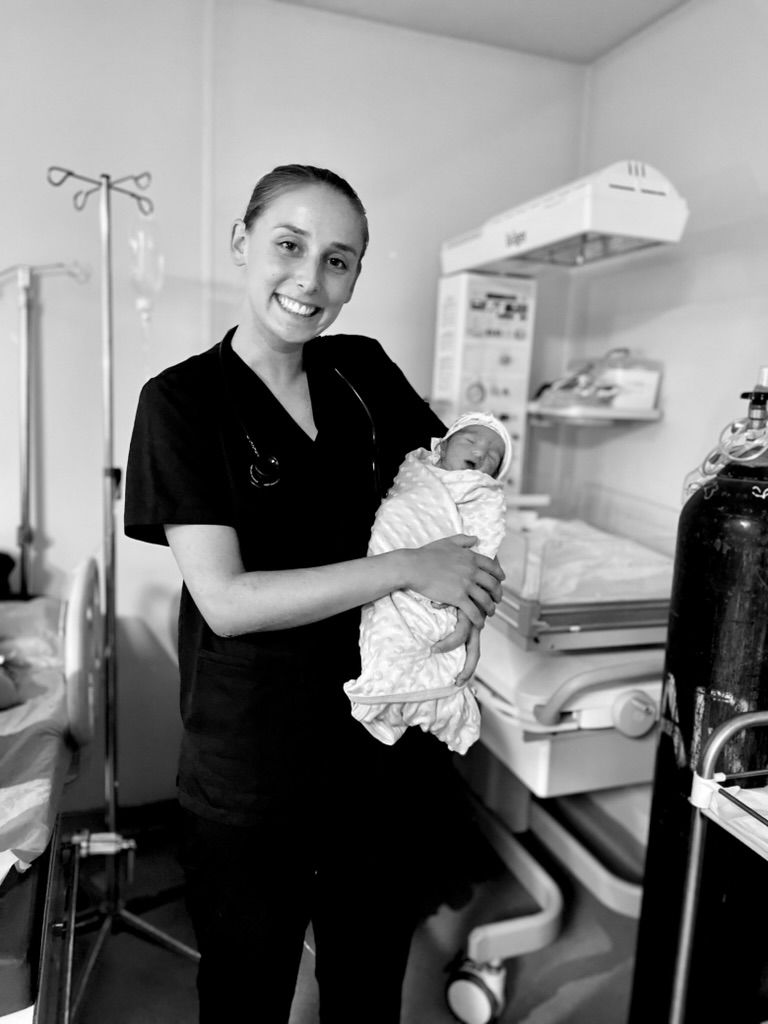
The midwife spoke of the challenges women face in pregnancy, birth, and postpartum, particularly the lack of education about their own bodies.
“Many women are not educated about birth and what happens to their bodies, let alone know of ways to cope with the contractions and how to care for themselves well,” Soldner learned. This knowledge gap rendered women “very vulnerable and powerless, which is dangerous for both: their health and their emotions.”
The conversation led to an immediate invitation to return. Just two months later, Soldner was back, this time sitting down with local nurses and midwives from a camp. Together, they began to design a curriculum for a birth class—a tool to empower women, to give them the knowledge and confidence to navigate one of life’s most profound experiences.
This initial collaboration sparked a series of short-term visits, each one deepening her connection to the land and its people. Eventually, the feeling became undeniable; it was time to move her life.
In 2023, Maria Soldner arrived in Duhok, making a deliberate choice to immerse herself fully. She recalls that she "stayed with a Yazidi family for the first few months that I moved here to learn the culture and language," laying a foundation of understanding and connection from her very first days.
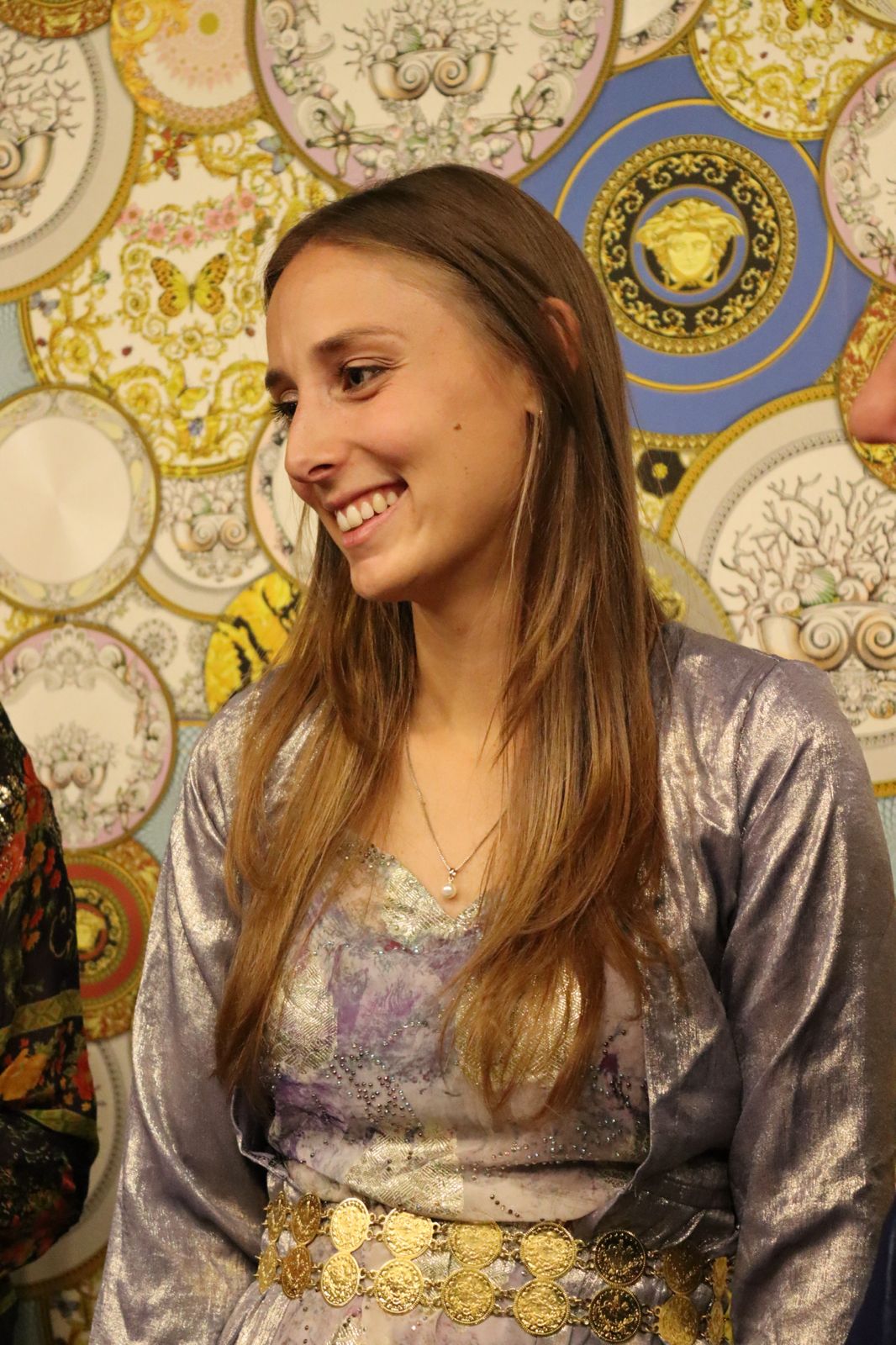
Since making Kurdistan her home, Soldner’s professional life has been a tapestry of service, woven through "midwifery-related work in camps, hospitals and universities." But when asked to speak about a project she is particularly proud of, one shines brighter than the rest. It is a project she describes as her favorite, a perfect synthesis of her academic passion and her hands-on work.
"The project I love the most and that I am still part of is a collaboration with the hospital management of a public maternity hospital," she explained.
Her journey into this specific work began years earlier, with her thesis on change management. "I think I was intrigued with the topic, because I know change of practice and in general in life doesn’t just happen," she reflected.
"It needs to be planned and prepared... it is an artform to sustain the change." In her research, she identified nine critical steps to successfully implement a new standard of care. In January of 2024, she was given the extraordinary opportunity to put her theory to the test.
The management of a major maternity hospital, which assists in over 13,000 births a year, reached out to her and her colleagues from the NGO ACORN. They asked for help in updating a common clinical practice.
The practice in question was the routine manual "scooping out the uterus" after birth, a procedure performed to ensure no placental fragments remained, which could cause life-threatening hemorrhage or infection. While the goal was safety, the method was deeply problematic.
"The practice of sweeping out is incredibly painful, can trigger past trauma and cause infection of the uterus," Soldner stated. Before her team's intervention, 100% of women who gave birth at the hospital endured this procedure. By training the staff to instead carefully inspect the placenta for completeness, the necessity for the invasive and agonizing intervention could be almost entirely eliminated.
The initial results were staggering. “After the training the staff recorded a rate to 3-5%, which is wonderful, having all the women in mind, that wouldn’t have to endure the pain...” However, she candidly acknowledges the immense difficulty of making such changes permanent.
“Sustaining a change is the hardest part of creating change. And since statistic keeping has been a challenge, we can’t know for sure if it is still like this,” she admitted, expressing a heartfelt hope that “the project still had a positive impact on women from the community.”
Yet, for Soldner, the project’s success is measured not only in statistics but in the human connections forged in the process. She speaks with profound admiration and affection for the local nurses, midwives, and obstetricians.
"They are wonderful women, that I value and that they have been very patient, welcoming, kind and generous with their hearts towards me," she shared.
She paints a vivid picture of the cultural encounter, highlighting her own vulnerability with humor and humility. "And then a quirky German woman with very broken Kurdish comes along, asks them many questions and wants to teach them a new skill. It's not normal the way they have loved and received me."
She is candid about the hurdles: "Often there are misunderstandings because of language and culture, but they have been willing to not only bear with me but have taught me a lot of my Kurdish and have loved me."
With the wisdom of hindsight, she expresses one regret: "I am sad, that I didn’t include the women’s perspective in the project. In my perception, women’s experiences of birth here are not being told enough but it matters." This reflection fuels her broader mission.
"There is no human, that was not born by a mother," she stated with conviction. "It is society’s responsibility to honor them by supporting them the best it can and dignify them in this difficult journey."
This responsibility, she argues, extends to supporting the healthcare staff who dedicate their lives to this work. "We must care for them, so they can care for our mothers."
When the conversation turns to what has kept her in Kurdistan, her answer is swift and certain. "This is a very easy question to answer. The people."
She readily acknowledges the breathtaking beauty of the region's landscape. "From snow covered mountains in Choman, waterfalls in Rawanduz, the vast Mosul dam lake, the Duhok mountains, Zaxo’s Delal bridge, the monasteries in Alqosh and Mar Matthei – where would I finish? Kurdistan is a gem on this planet."
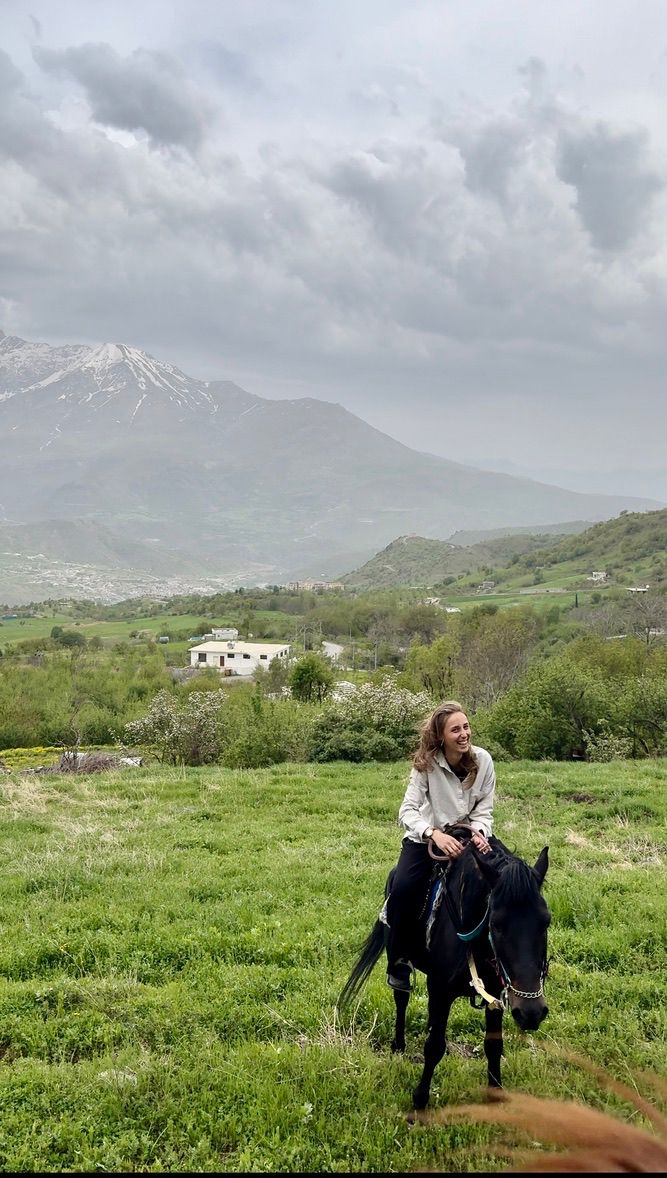
But, she insists, scenery alone does not make a home. "You can be in paradise but unhappy, if you don’t have life-giving relationships with others."
This truth was brought home to her in the most personal way through the Yazidi family who welcomed her as their own.
"To feel part of a family that is not your birth family within weeks and them truly meaning it has been one of the biggest gifts in my life."
The generosity of spirit she encountered continues to puzzle and inspire her. "How can a people, whether Yazidi or Kurdish or Assyrian, who have undergone so much persecution have such a generous, welcoming and soft heart?"
She often finds herself explaining this profound difference to new acquaintances who ask the inevitable question: "Çi xoşitire? Almania yan Kurdistan?"—What is better, Germany or Kurdistan? Her answer is a poignant comparison.
"Yes, Germany has great job opportunities, good salaries, water and electricity... But in Germany your neighbors usually wouldn’t even think to invite you over for chai."
In Kurdistan, she has discovered what the Jewish philosopher Martin Buber described as the essence of existence: "All life is encounter." It is this "deep sense of belonging, being embraced and almost swallowed up with love into a neighborhood and community" that has become her anchor, "despite all differences due to language and culture."
This sense of belonging is rooted in the region's vibrant, complex diversity. When asked about her experience with "the people in Kurdistan," she paints a picture of her world, populated by Syrian Kurdish friends, Yazidis, Assyrians, and Arabs—a "wild, wild hodgepodge of backgrounds, cultures and traditions" that keeps her falling in love with the country.
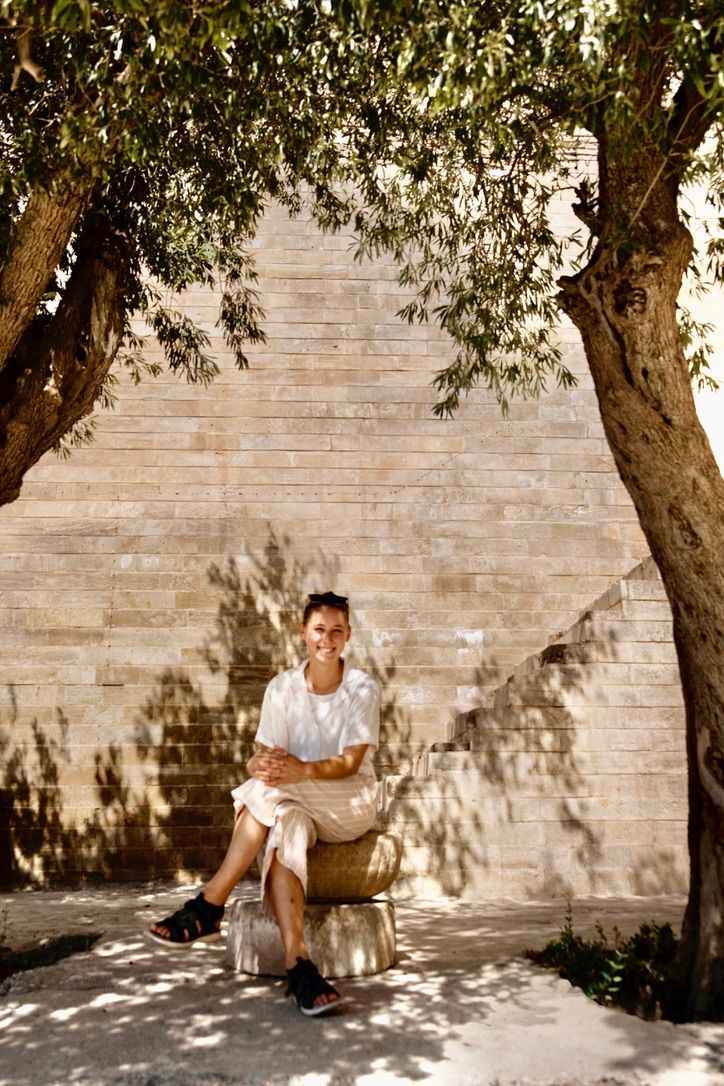
"Just like the beautiful carpets you can buy at the bazaar on the bottom of the citadel in Erbil," she mused, "each and every people group and individual are a patch or a thread in the beautiful carpet of Kurdistan."
Her life is now woven into this carpet. "I got to dance on Yazidi weddings, watched the Assyrian new year parade outside our hospital, was taught how to make biriyani by my neighbor, was served a super delicious dish that was also called Maria at my Syrian friend’s house," she listed.
Her integration is a journey of both joy and humility. She admits she has made mistakes, "communicating too directly as a German does," and still struggles with local customs, laughing that she has "somehow managed to still not be able to get the chai right."
But through it all, she has been met with grace. "It is so humbling to be loved as a misfitting foreigner," she reflected. This experience has given her a new perspective, and a quiet wish for her homeland: "I wish more people in my home country would be humbled like this and receive foreigners more openheartedly."